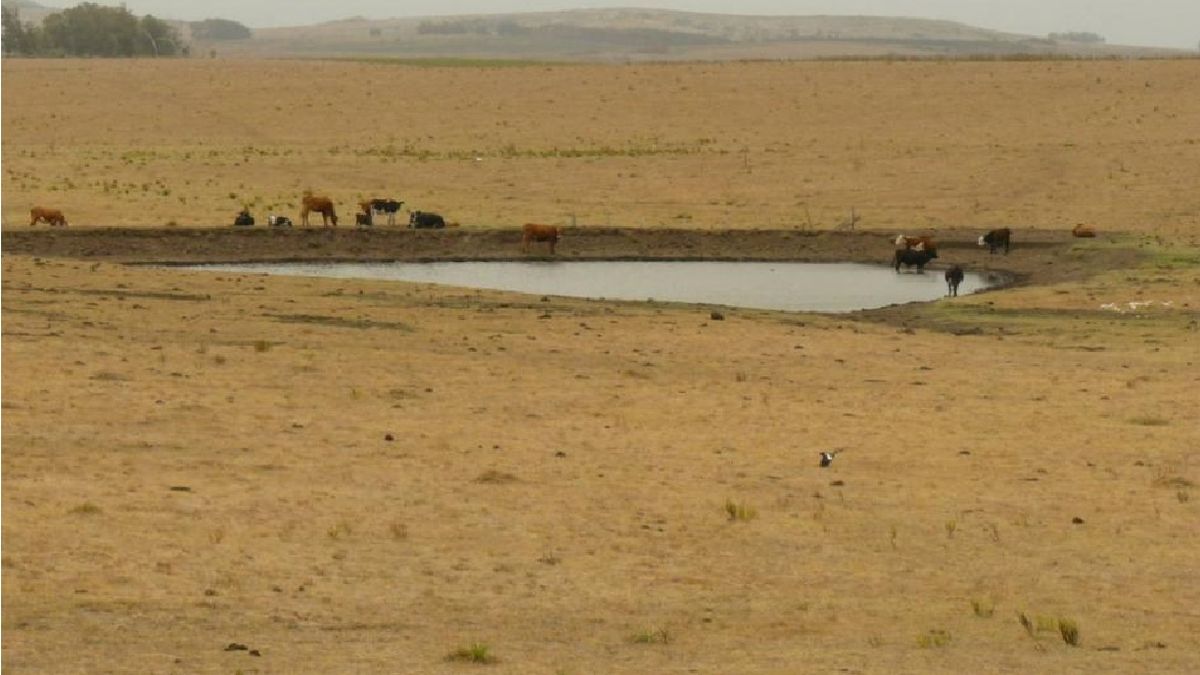“This is a close government,” he says emphatically Gonzalo Valdez to scope.comwho chairs the Rural Association of Uruguay (ARU), the most important agricultural and livestock union in the country. Beyond that affinity, there is a strategic point that seems to separate the producers from the economic team at least: the need to correct the exchange rate arrears. In this line they do not stop presenting proposals and some claim.
– What evaluation is made of the current state of the drought problem? How is it affecting the national productive sector?
-We are at a critical moment, where at least 3 years of dryness accumulate. Not having rained in the month of February and so far in March not only complicates the moment, that is, the instantaneous impact of the drought, but also, and depending on the items, compromises the generation of fodder for the winter.
In what has to do with the agriculture we could talk about one by one unsuccessful summer harvest. With some rare exceptions, but in average country terms the harvest is going to be very, very low, below expectations.
In cattle raising, the impact is going to be for breeders in the spring-autumn of next year. This will also end up affecting the tasks, we are already talking about the year 2025, 2026 and perhaps something about 2027.
Gonzalo Valdés ARU.jpg
Photo: Added Value
-The sector has made proposals to the government, what responses have they obtained?
-We more than make claims, we make contributions and proposals to find the necessary tools for producers. We have presented various measures to various ministries or agencies. In some of them we coincided with the government and similar or equal measures were taken to those that we proposed.
– What are those measures?
-We are talking about this extension of maturities, for example. We are not asking for subsidies or a reduction in taxes, simply what we have asked for is extensions to lighten the pockets of producers a little and so that they can handle themselves more freely in financial terms.
But we do have a pending issue and this is no longer an issue due to the drought, but it is a national problem from many years ago that is now greatly increased, which is the exchange rate delay. This is very very serious for the export sector and today with this combination for the agricultural sector this is explosive.
– Missing answers?
We have talked about it a lot with him. central bankwith the Ministry of Economywith the Ministry of Livestock, among others. Our meetings began in the month of June 2022. At that time we were told that the dollar it was in the value of its fundamentals, that there was no type of deviation, what there was was a lot of dollar income, obviously, due to the increase in exports that occurred last year.
In December we talked about it again, there they told us about a deviation of around 12%, although we were driving that it was around 20%. Today we are also finishing a tourism harvest that brought dollars to the plaza.
There are the measures of the Central Bank that were increasing the interest rates of the bills of monetary regulation, which has made it more attractive to invest in pesos and not in dollars. We understand the autonomy of the Central Bank, but we also we want a signal to drop rates.
– Last week President Lacalle Pou made a management report and gave some announcements. Did you expect something special for the sector? What evaluation do you do?
– We share many of the announcements made by the government. On the subject of tax cuts personal income tax and IASS, we understand that it is a relief for the most vulnerable sectors. There was also an increase in the range of producers who pay taxes imebawhich is a temporary and transcendent measure.
It is a government that makes an effort to fulfill its electoral promises, that suffered the effects of the and that chose to maintain an open and functioning economy. In that crisis the field continued to function and there were no new taxes. We recognize that to the government, the effort it made to take care of the health of the inhabitants without shutting down the economy. It is a government close to agriculture, that knows the countryside and that we have no obstacles to make proposals even directly to the President of the Republic.
Source: Ambito




